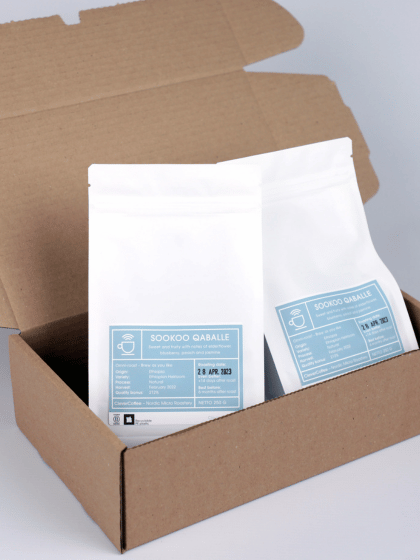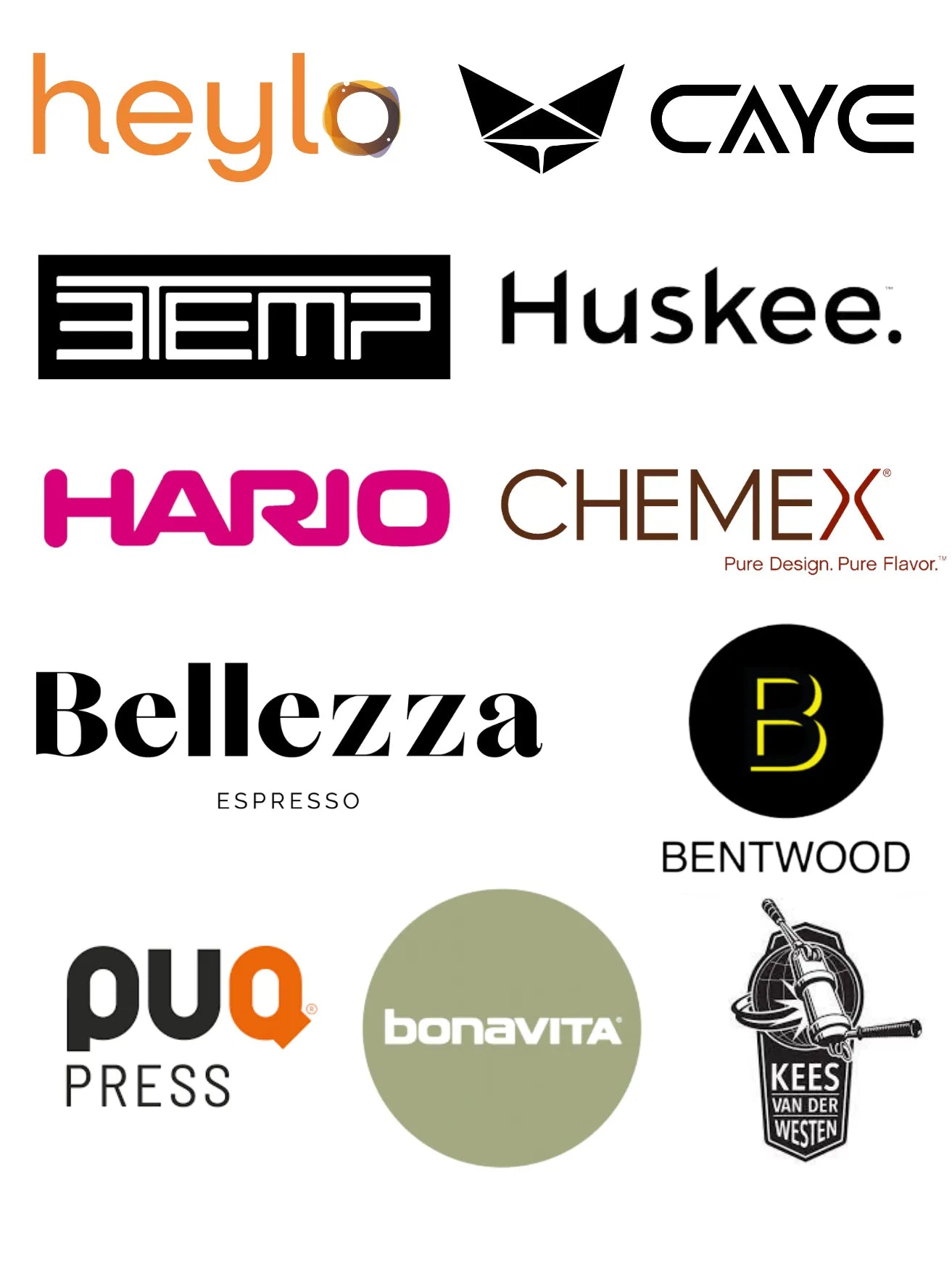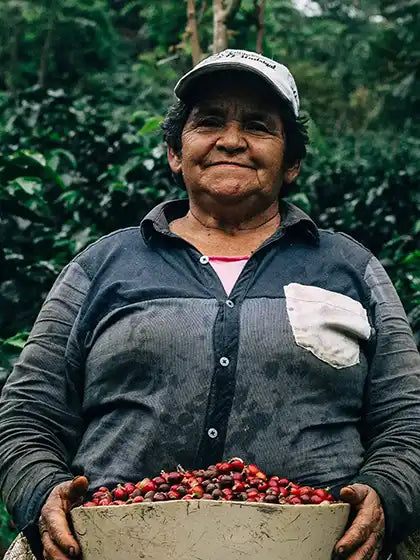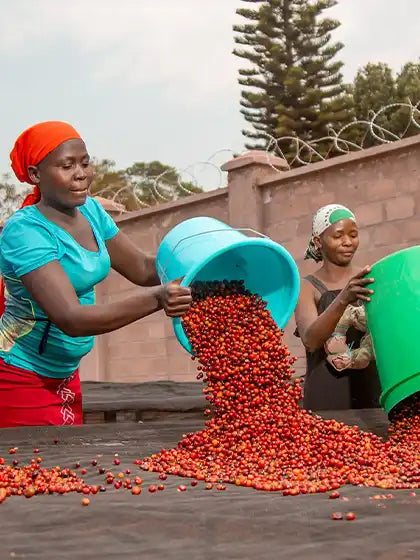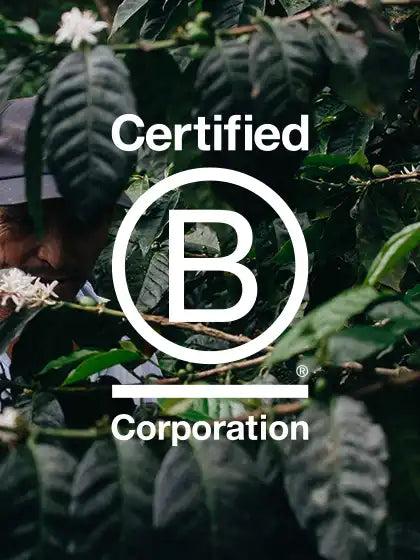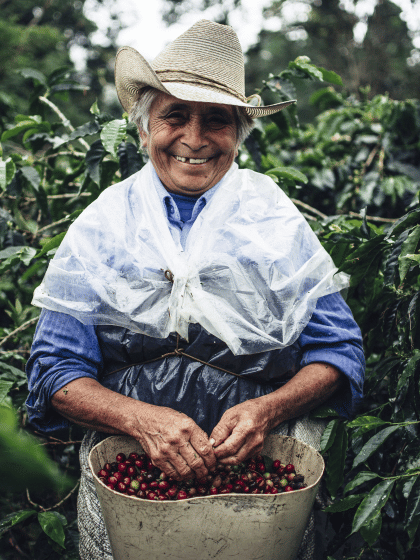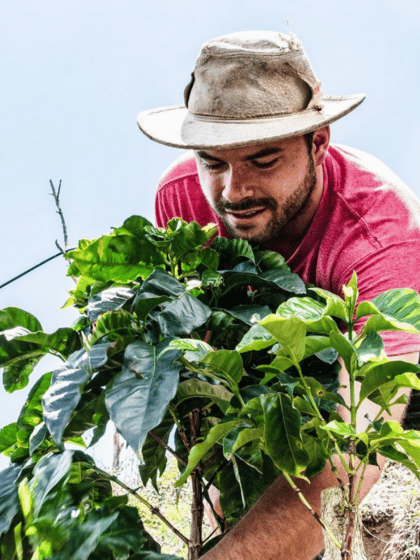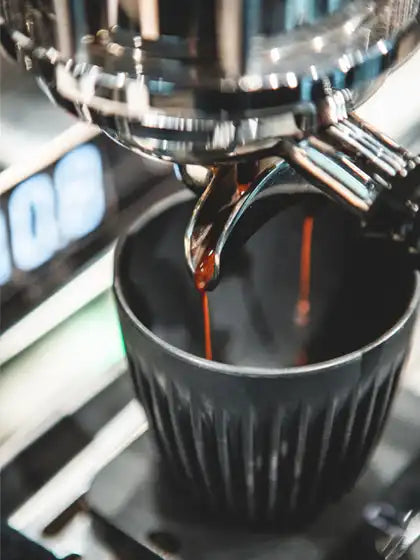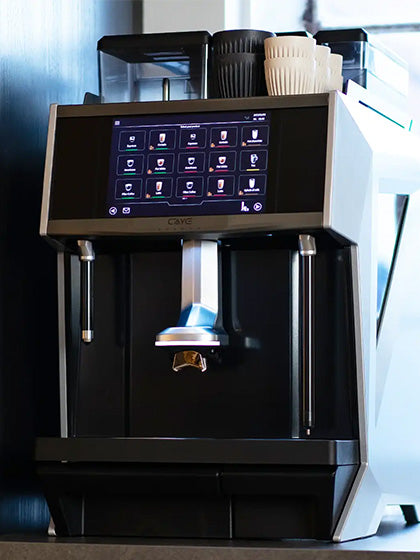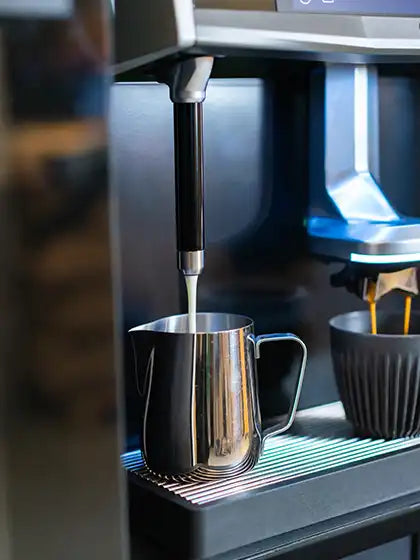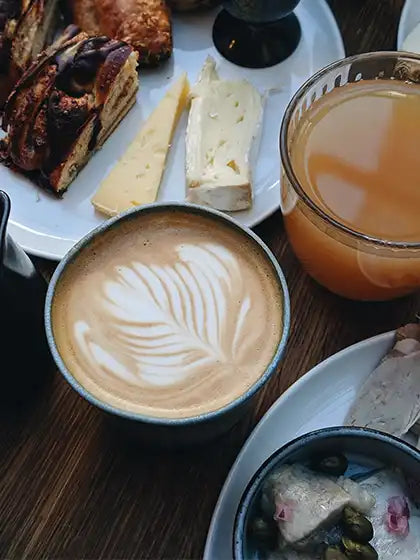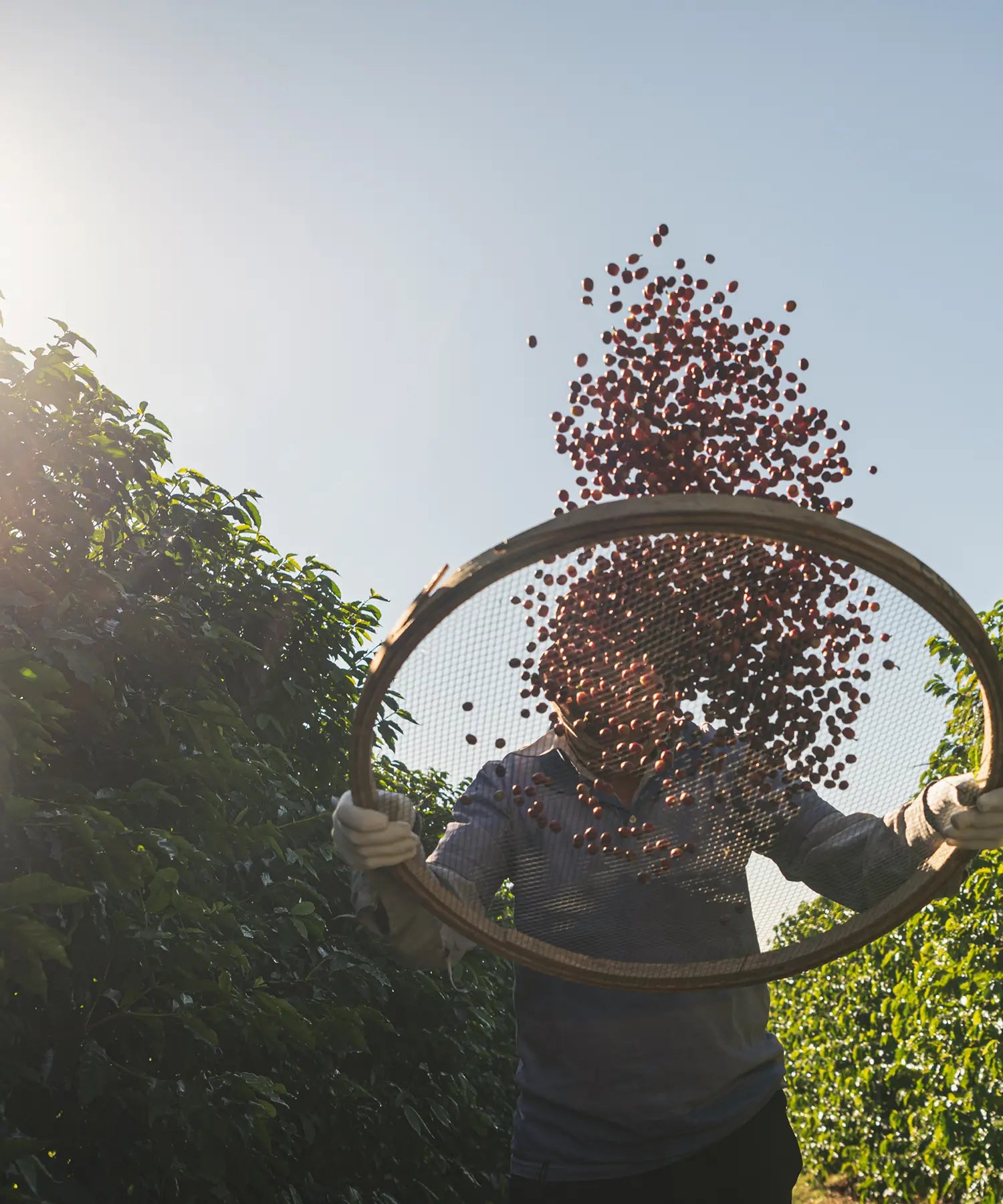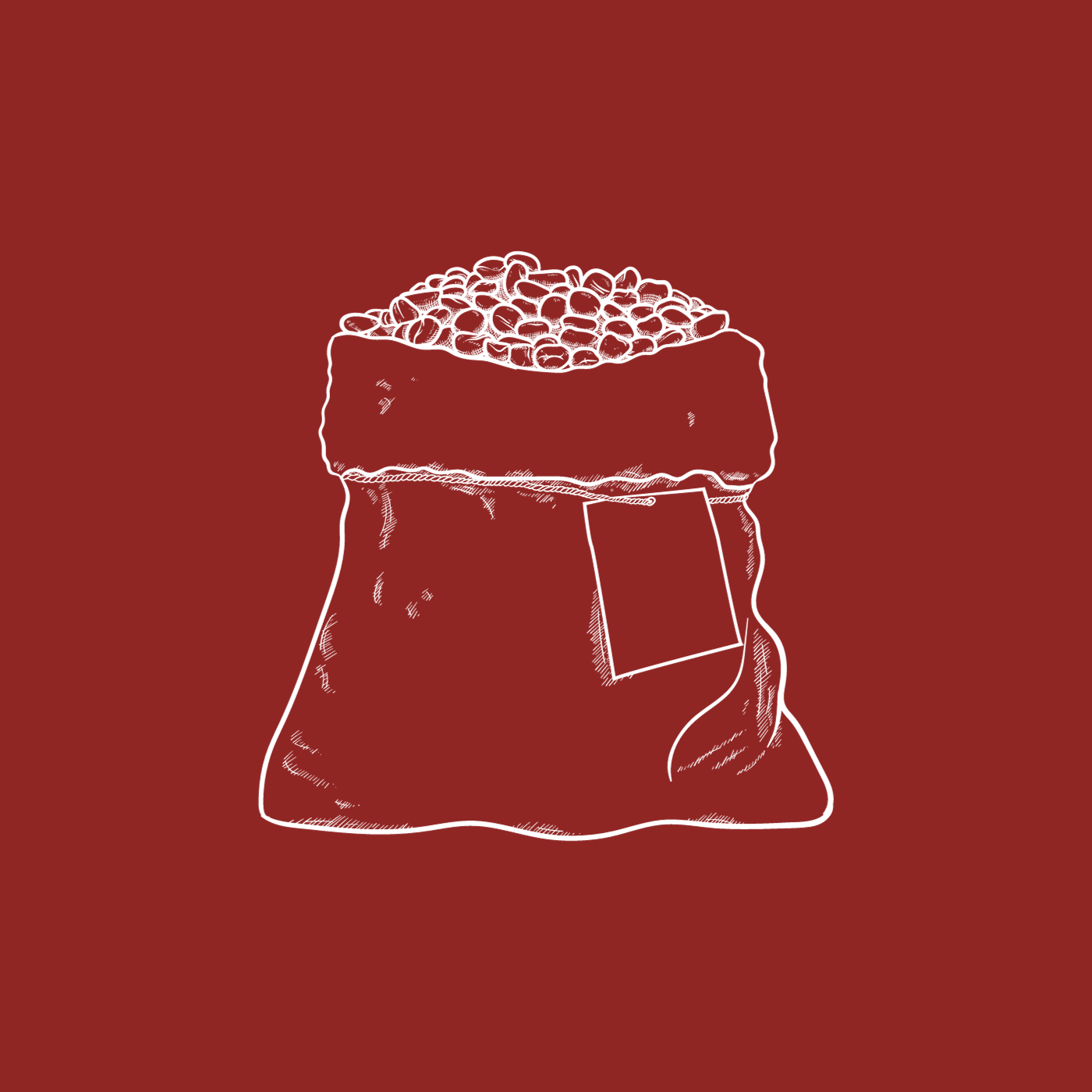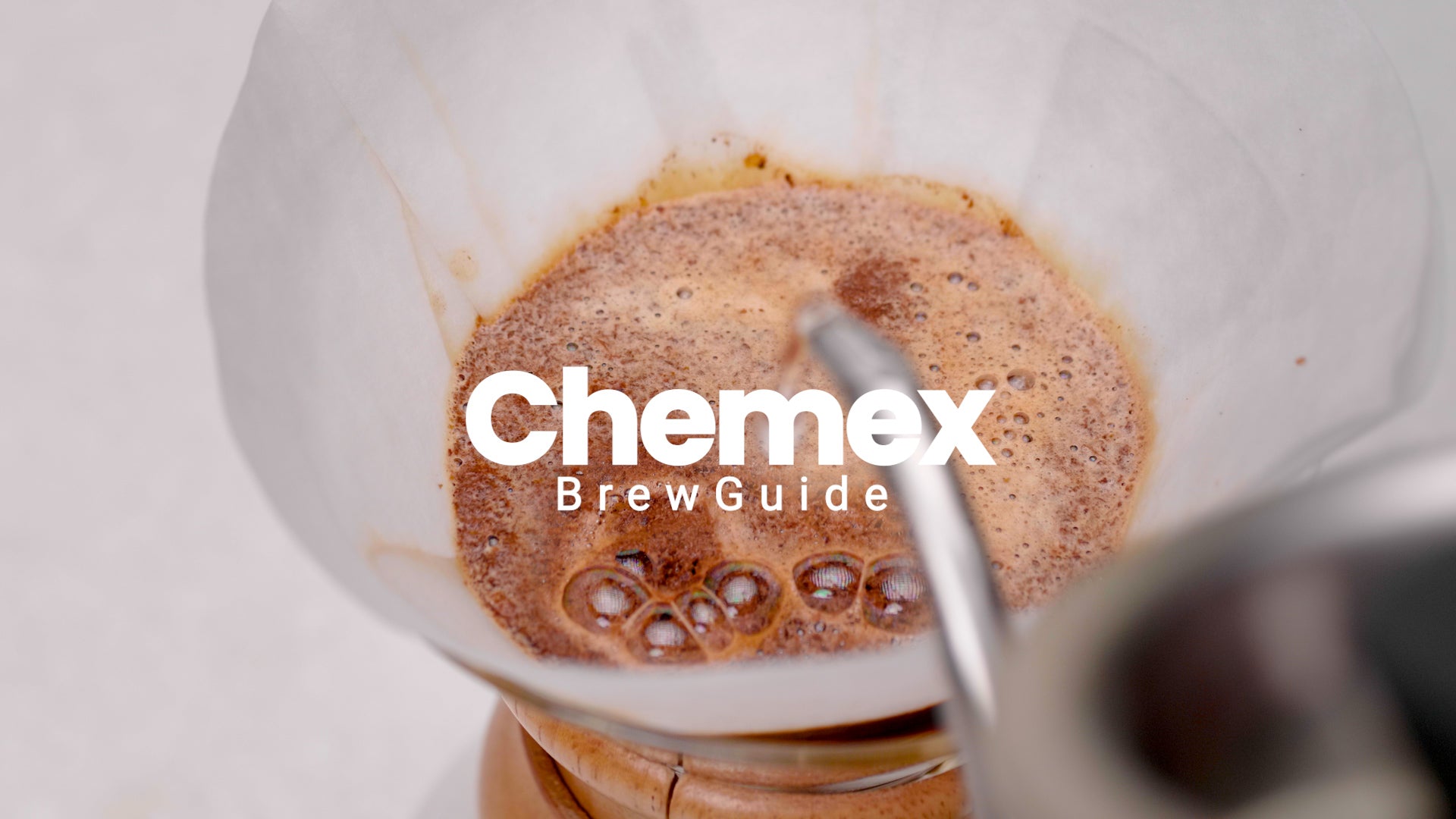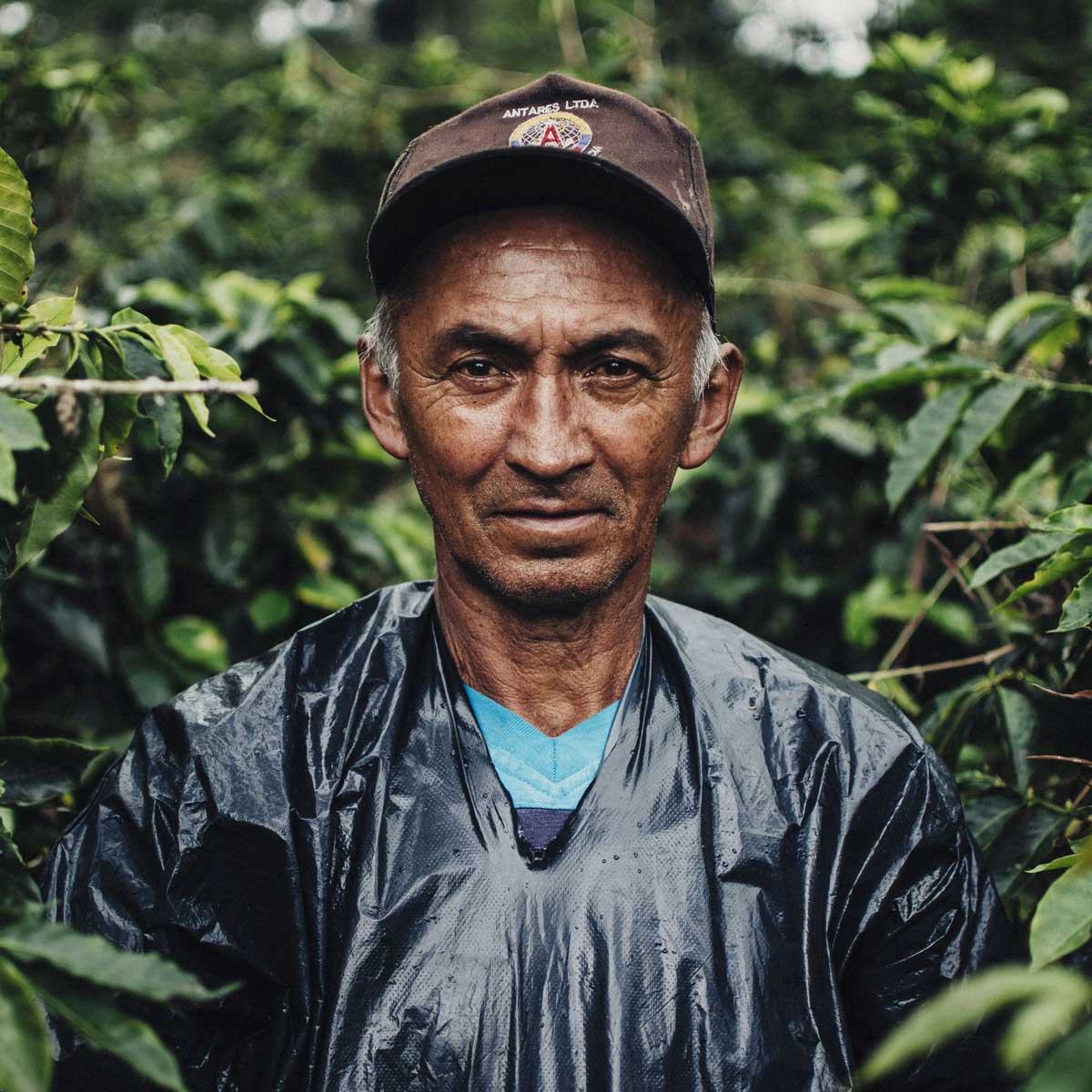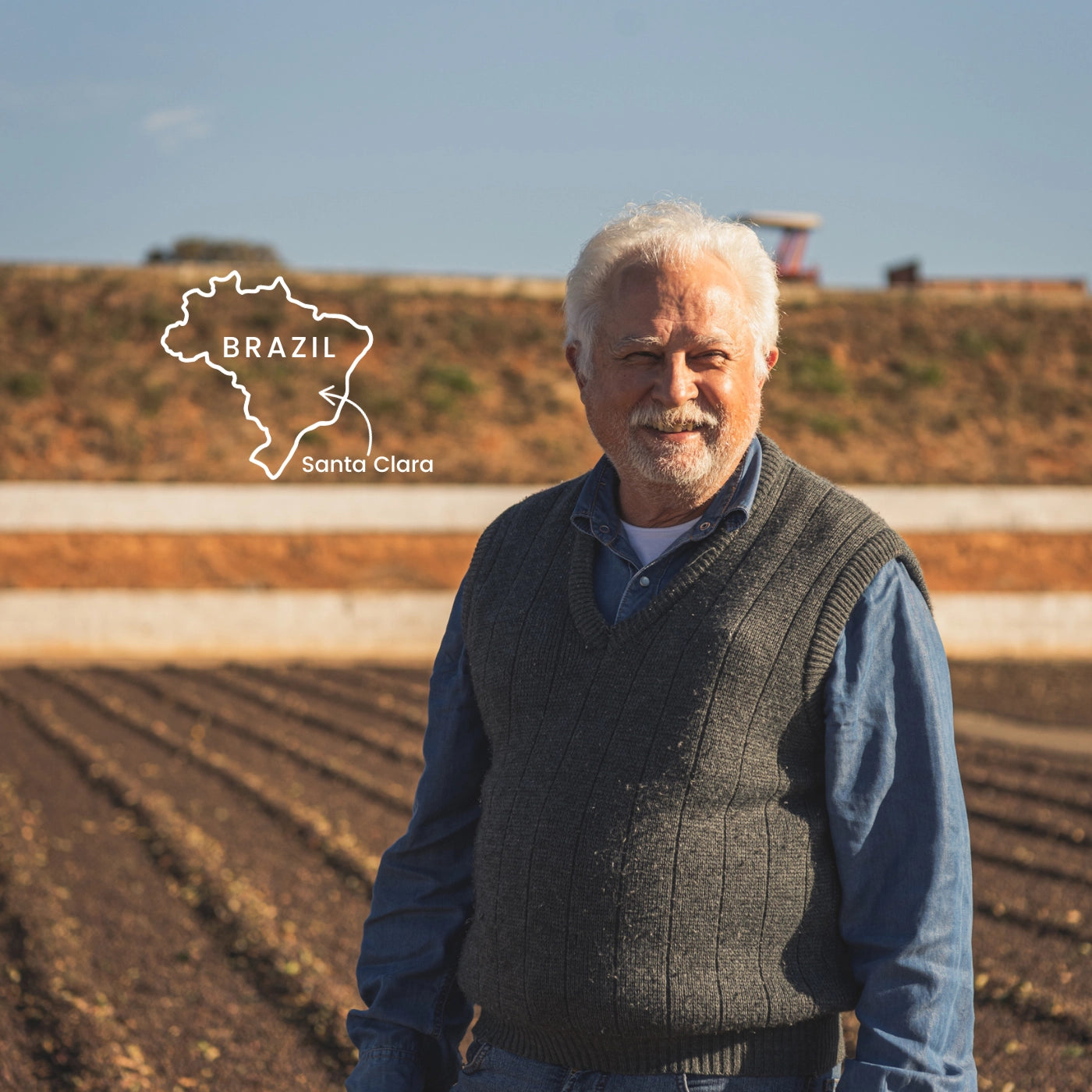
282 Coffee Farmers in the Cooperative
Specialty Coffee and Responsibility at the Forefront
Sancoffee has a strong focus on sustainable development. They are constantly working to implement new initiatives such as regenerative agriculture, sustainable energy sources and agroforestry.
They are a cooperative that only grows specialty coffee of the highest quality. In 2021 we bought 6000 kg of coffee from Sancoffee, and it's where one of our bestsellers – IMPACT No. 01 – is from.
IMPACT No. 01 is produced on the coffee farm Santa Clara. For a farm like Santa Clara, the community is one of the key elements to ensure sustainable and profitable production. They can help each other and benefit from the efficiency gains inherent in a larger operation of, for example, the wet and dry mill.
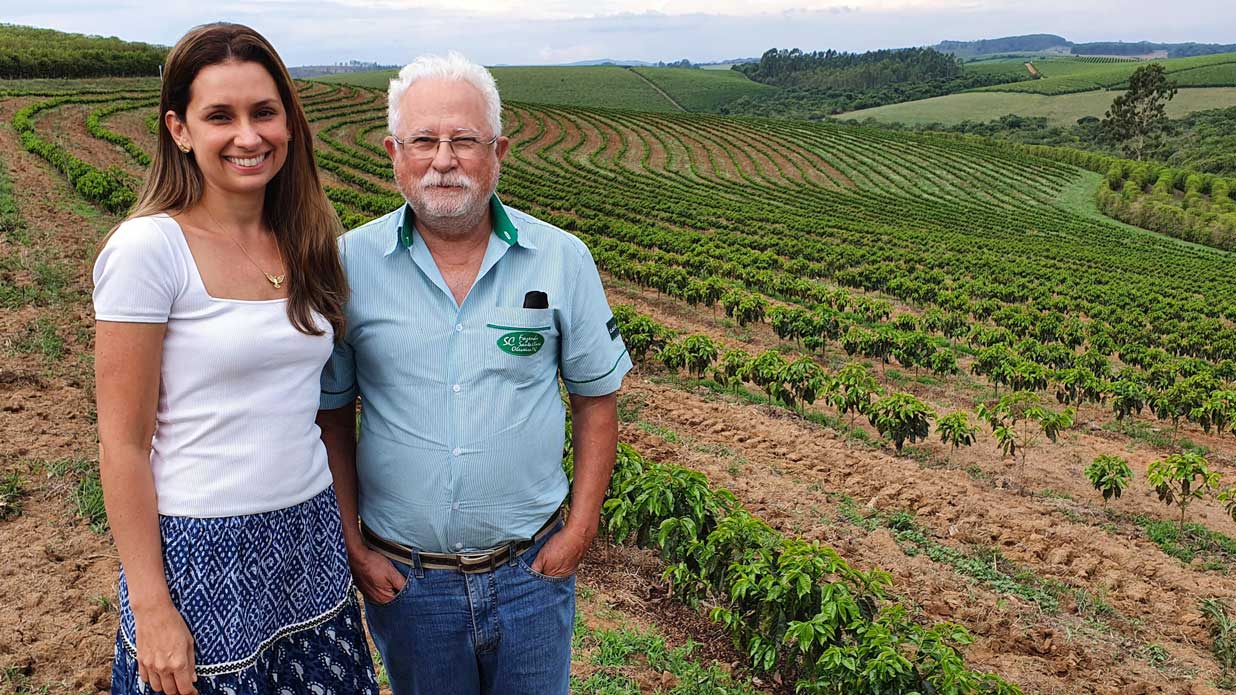
Santa Clara
The farm's full area extends over 1445 hectares, of which 193 are used to grow coffee. 365 hectares are used for wild planting to ensure biodiversity in the area.
The owner of Santa Clara is Paulo Afonso de Resende, and he is a third generation coffee farmer. He grew up on a coffee farm and after a few years as an engineer, he chose to buy the farm Santa Clara, which he now runs with his family. His daughter Lilian is particularly very committed to the work.
Sancoffee Coffee

IMPACT No. 01 - Popular coffee from Brazil
Title
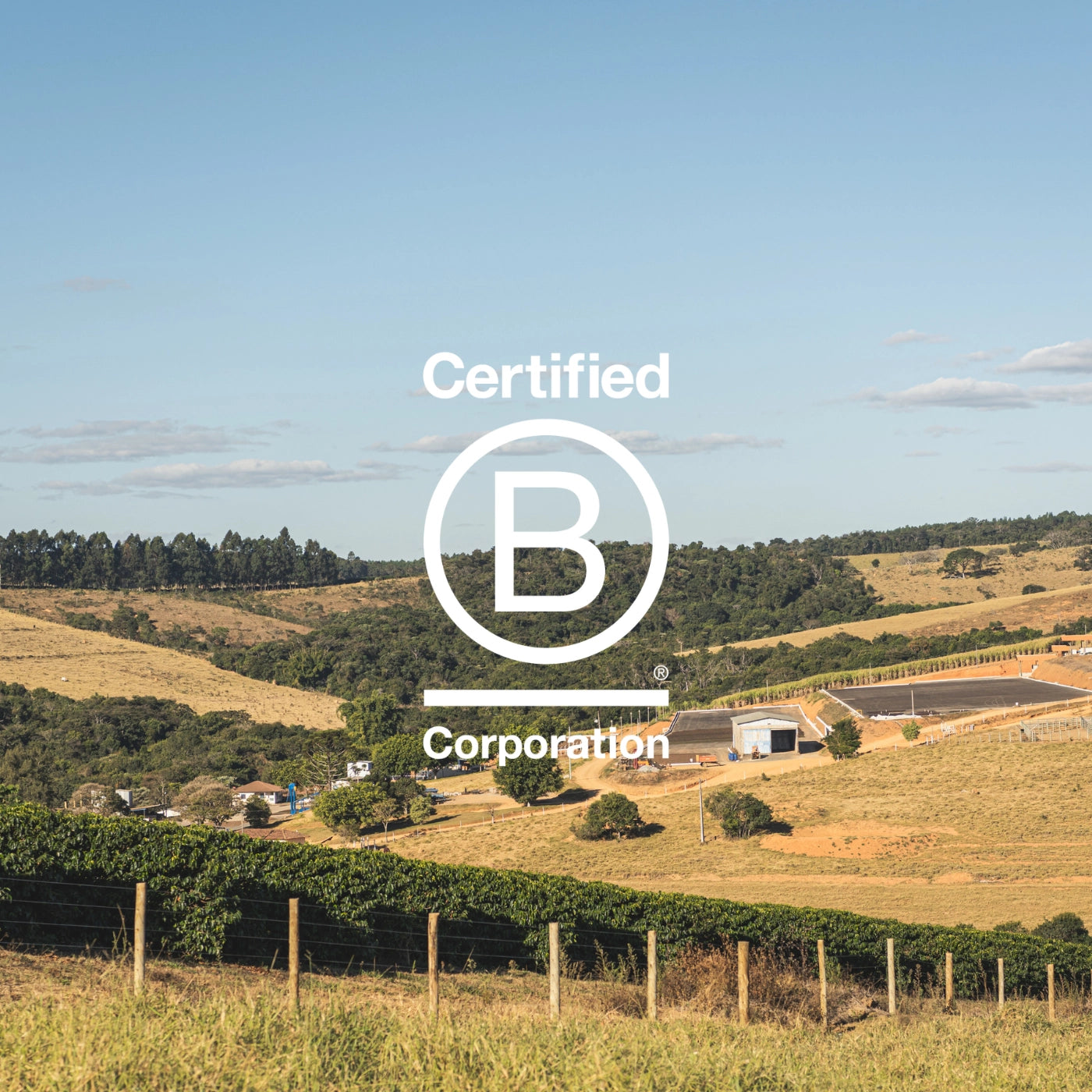
Not Organic, Not Fair Trade, But..
In addition to Sancoffee's B Corp certification, which helps Paulo and Lillian, Santa Clara has also chosen to have the coffee farm certified with "4C Farming". The 4 C's stand for "The Common Code for the Coffee Community".
4C is a certification that was developed specifically with coffee in mind and in our eyes, it is the most holistic product certification on the market. It attaches equal importance to the environment, social conditions and the economy.
You can read more about 4C right here.
Responsible Measures in the Cooperative
With the publication of our Transparency Report 2022, we asked Sancoffee to answer 5 questions.
Here you get their answers:
We are excited about this Carbon Program. We are still learning and improving our methods. But, so far, it has been time intensive and expensive. Our main challenges are to develop tools and methods that make it possible to scale the whole process up and to keep the growers engaged and willing to collaborate and to invest into the program, while measuring the emissions and changing production techniques to shorten their farm emissions.
Ana Claudia, Head of Impact at Sancoffee
Currently, our main goal while investing in organic coffees is to push ourselves way out of our comfort zone. we believe with that we can learn more conservationist farming techniques that would yield high quality coffees being sustainably and resiliently produced.
But, if we reached a point in our learning curve where it is possible to have a viable 100% organic coffee production, we would be happily transitioning all our areas into this system.
Ana Claudia, Head of Impact at Sancoffee
Through the long term and more structural perspectives, we believe the main challenges in place now are climate change, which has been bringing extreme volatility to the businesses; and generation succession either on young farmers and young co-workers throughout the coffee supply chain.
Ana Claudia, Head of Impact at Sancoffee
There have been many achievements, but the most outstanding ones are to be the first carbon neutral coffee cooperative in Brazil. We have calculated all the carbon balance from the moment our growers utilize inputs to produce coffee to when our containers go onboard on sea freight vessels; and, we have finished the Bio Recovery diagnostic phase. Now we have numbers, maps, satellite images and other info about environment and land use conditions for all Sancoffee member farm areas, which comprises more than 15,000 hectares of land in the Campo das Vertentes region. Out of this total area, we need to implement actions to recover around 500 hectares, which are degraded.
For 2023 we will go even deeper into our search for means and tools to make it possible to scale our Carbon Program up. The goal is to reach other 300 non-Sancoffee member producers with whom we work in the region. Plus, we will go after partners to help us raise funds to start the second phase of the Bio Recovery project, which is to implement all the actions we have planned to recover the degraded areas.
Ana Claudia, Head of Impact at Sancoffee
We believe there are several ways roasters can help coffee farmers to achieve sustainability in its broad perspective. And there are few roasters already doing it genuinely, like Clever Coffee.
Here I share some thoughts:
Communicating and promoting the good initiatives in the consuming markets;
Keep listening, supporting and doing business with reliable and well-intentioned producers;
Advocating among civil society and police makers in favor of financial incentives to growers preserving the environment and working to reduce carbon emissions.

